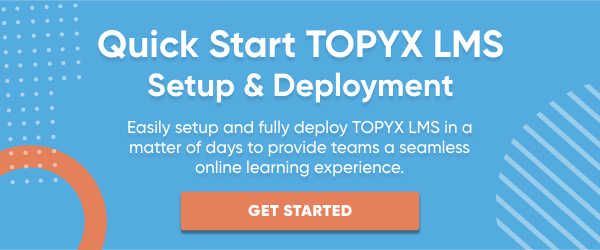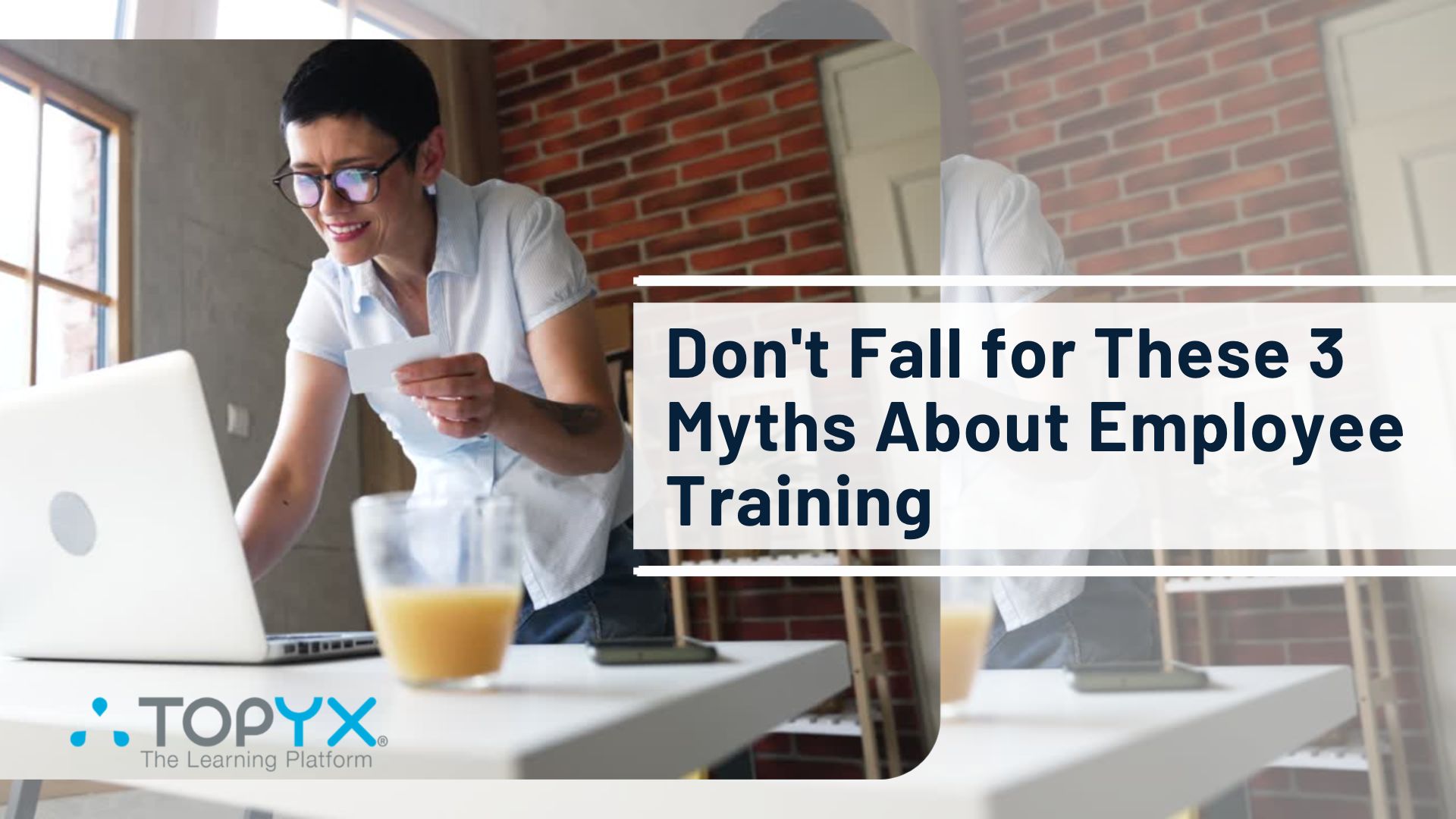Subject matter experts (SMEs) are critical for the proper development of both in-person and online employee training programs as they have the knowledge to help L&D teams shape training and ensure it is accurate, understandable, and comprehensive. Without in-house SMEs, it’s difficult for companies to specialize in a given topic and prove that they have the industry expertise needed to be considered an industry leader. If your company doesn’t have subject matter experts onsite, you can take some simple steps to begin developing your employees into SMEs.

3 simple tips for developing subject matter
experts (SMEs) in your workplace
Turning regular employees into SMEs isn’t as challenging as it sounds. It can be as easy as implementing the following tips:
1. Pay for outside training
When you are developing a potential subject matter expert, you must ensure they are receiving SME training in their area of expertise. If you don’t already have a team of SMEs, or at least one SME with the same concentration as the individual you are developing, it may be necessary to pay for outside training in the prospective subject matter expert’s topic of choice. For example, you could choose to purchase specialized online training from a third-party vendor.
It may seem extravagant to invest in developing an individual who may or may not stay with your company long-term. However, your L&D team could use the third-party training to train other prospective SMEs and begin building a repository of subject matter expert training content that will be useful for years to come.
Related Reading: 3 Tips to Improve Subject Matter Expert (SME) Training While Navigating COVID-19
2. Have your L&D team create a learning path for potential SMEs
Prospective subject matter experts must complete a learning path dedicated to the role of SME. The SME learning path should include full-length eLearning courses, microlearning training segments, and even one-to-one training with a supervisor or in-house SMEs (this could take place virtually as companies navigate the COVID-19 crisis).
Additionally, it’s worthwhile to have an SME online learning path result in certification. The certification doesn’t have to be industry-standard. It could be created by your L&D team members and simply state that the individual who receives it is a company-certified SME. A certification may give employees a significant feeling of accomplishment after getting to the end of the learning path and boost their excitement about stepping into the role of subject matter expert. You can use your LMS certifications feature to create, deliver, and manage certifications.
Related Reading: SME Training: 5 Reasons to Publish Content with an LMS
3. Ask future SMEs to prepare and offer short presentations
Once a prospective SME has received some subject matter expert training (both general and in their area of expertise), it is time for them to put their newfound skills into action. One practical way you can encourage this is by asking them to prepare and offer short presentations to their peers in meetings and employee training sessions, either virtual or in-person. While they may find this to be nerve-wracking at first, it will give them some experience talking about what they are passionate and knowledgeable about and build their confidence.
Once employees are company-official SMEs, they could also start helping the L&D team create specialized employee training and coaching their coworkers in their topic of interest. At least one coaching course should be added to an SME’s online learning path if they are intended to serve as a coach to others.
Create a culture of expertise and establish your company as an industry leader with an LMS
It’s helpful when company leaders make it their goal to not merely develop SMEs but to develop a company culture of expertise. This starts with taking steps to turn select employees into subject matter experts. Once your company has an online learning path for SMEs, some semblance of a repository of SME training, and a small pool of SMEs, begin setting up mentor-mentee relationships between prospective subject matter experts and current ones. These relationships will naturally promote a culture of expertise and help establish your company as an industry leader.
A learning management system (LMS) is an ideal tool for developing subject matter experts as well as a culture of expertise. An LMS can be used to create online learning paths and certifications for SMEs, develop SME training content, and connect potential SMEs with current in-house subject matter experts via social learning tools. Request an LMS demo of the TOPYX platform to learn more.









